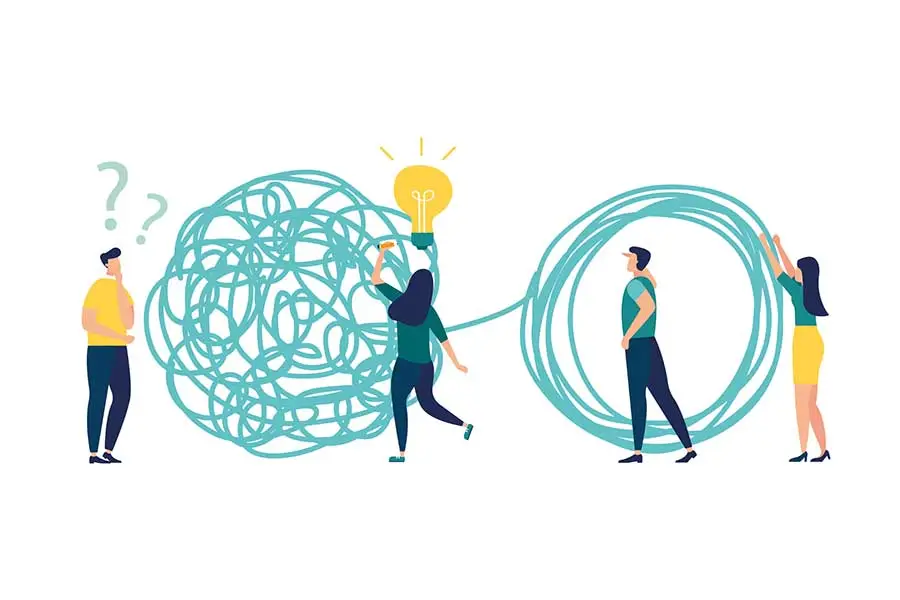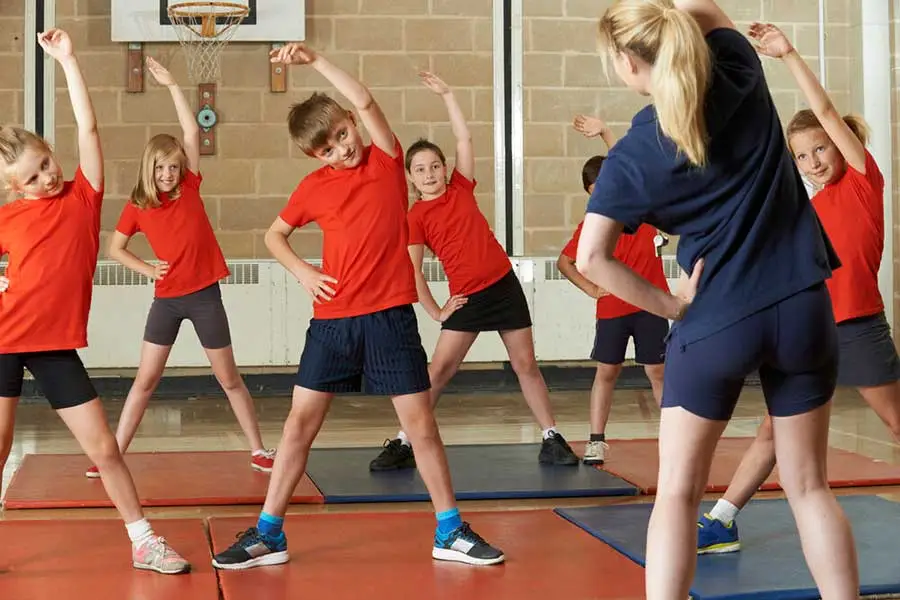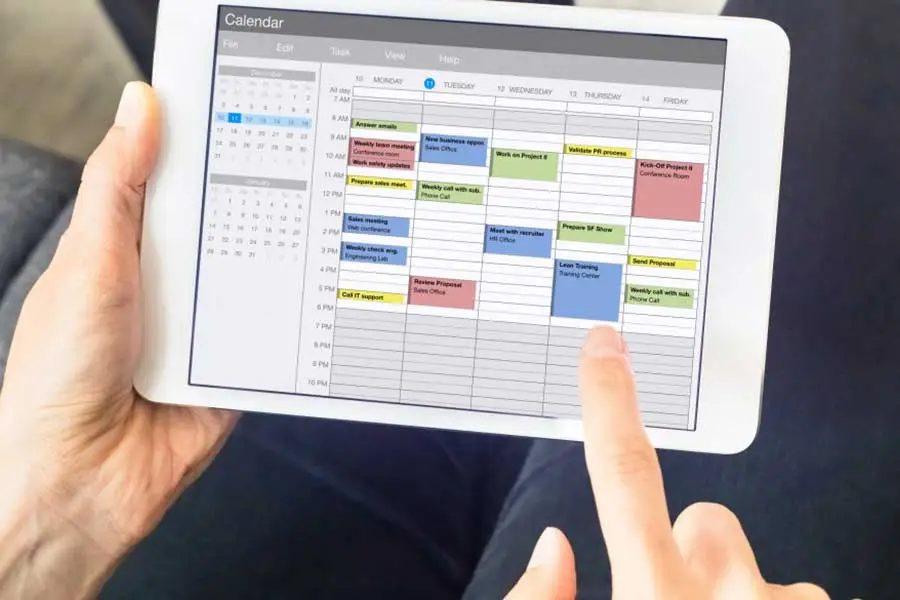31 Learning and Study Tips that Guarantee Success 2025

What learning and study tips would straight-A students give you if you asked them? In this article, We’ll share with you their secrets and study tips to achieve academic success.
1. Warm-up your brain
Just like the way you warm up your muscles before exercising, your brain needs a warm-up too. Read a piece of magazine or something light before studying. You can also review the previously taught material which makes more sense. By doing this study tip you kill two birds with one stone you get your brain warmed-up while you review the material.

2. Have a study strategy
Use the SQ3R method for textbooks; instead of jumping into a text passage immediately, Survey, Question, Read, Recite, & Review. This strategy helps you understand more of a text as you’re reading it for the first time.
- Find the argument of each paragraph (what the writer is trying to say), underline names, dates, and keywords.
- Then read the entire passage actively.
- After that, say the things you read back to yourself in your own words.
- At the end, review the point of the whole passage in your own words.

3. Spaced repetition learning technique
The harder your brain has to work to retrieve something from it the stronger that information gets encoded. So the idea behind this learning tip is that you deliberately allow your brain to forget some of this information so that when you revise it again it’s not parrot-like repetition, it’s actually taking you some brainpower. How do you do this?
You start off reviewing information on flashcards you made at gradually increasing intervals. You do it tomorrow, 3 days later, a week later, and then a month later. So you basically repeat it at least 5 times at different narrow intervals. Begin like this:
- If you can answer your flashcards immediately, put them in a separate pile to review 3 days later.
- If answered with difficulty, put them in a 2-day-from-now pile.
- Review those you answered incorrectly or didn’t answer at all the next day.
4. Visualize
Try to find out what might pique your visual interest. Charts? Diagrams? Color-coded headings and paragraphs? Flashcards? There’s also a specific visual method called Loci (Latin for “places”) or mind palace that the famous Sherlock Holmes uses. This technique helps you remind lists, words, digits, and faces better.
- Place: Choose a familiar route. (eg. Your House)
- Path: Define a Well-known path (Kitchen to your bedroom)
- Location: Choose places to “store” your information in them (Hallway, stairs, on the bed…)
- Placing: Place the items you’re trying to remember along the route in the correct order they need to be memorized
5. Listen to Learn
This study tip is kinda obvious but still really important. Listen to your teachers just like the way you listen to your favorite songs with your brain focused on the lyrics. If you’re bad at listening you’re bad at learning, it seems obvious! But the thing is, listening is not automatic, you need to learn how to listen first and listen effectively. Fake listening (pretending that you’re listening while your mind is elsewhere), handling too much information, distractions, lack of interest in the subject, environmental factors (lighting, position, temperature, etc.), and interruptions can hurt your focus. Try to eliminate these as much as you can.
6. Write stuff down
So you listened to your teacher, took a few notes, and you’re ready for the exam, huh? Unfortunately, this doesn’t work for most people. When you take notes and study them later, use a pen to write them down on a separate sheet. By doing this study tip, you force your brain to encode the information in your long-term memory. That is to say, when you jot stuff down you remember them better later on.

7. Record your voice
Record your voice while reading your important notes and listen to your recordings later. Have a presentation? Do this study tip a couple of times to find out what your mistakes are, how you sound to your audience, how to improve your work, etc.
8. Turn it into a song
Can’t memorize math and physics equations? Use mnemonics, rhymes, and songs. Here are some simple examples:
Area of a circle: Apple Pies Are Square (A=π × r2)
Circumference Of A Circle: Cherry Pie’s Delicious (C= π × d)

9. Use metaphor for deep learning
Metaphor helps us to make sense of the unknown through something we know. This study tip works best for abstract ideas that seem hard to understand or explain. If you don’t get something, try to simplify it for yourself with familiar things. For example, chemical bonding is like magnetic connection, wetlands act like sponges, Noble Gasses are snuck-ups!
10. Take linear and nonlinear notes when studying
Do you only write down information in the order in which you receive it (linear note-taking)? Or you highlight keywords, add bullet points, mind maps, spider diagrams,… to your notes (nonlinear note-taking)? Using both of these ways helps you make more links to this information, gain better knowledge of the subject, and make it your own.
11. Self-test
This important study tip is unfortunately neglected by most students. Use a test practice book and give yourself an exam under exam conditions if you’re preparing for one. If not, ask yourself a couple of questions on the subject you studied and try to answer your own questions without looking into your notes.
12. Make it fun
Some school subjects can be boring and not exactly your cup of tea but if you convince yourself that the subject is fun and interesting you’ll have less difficulty recalling the information. For example, if you find your physics class boring, try to develop curiosity about the material. Search for the real-world applications of physic laws. Make your notes visually-appealing.

13. Find a study buddy
Sometimes you might feel that you’re the only person in this world who has a problem learning something. A good study buddy helps you get over this feeling. You can support each other, discuss the subjects, and prepare for your tests together. Don’t underestimate the power of this learning tip! If you’re struggling to find one around you, just use online websites or apps that help you find your perfect match.
14. Simplify to understand better
Never memorize information without understanding it first. Paraphrase the content of your textbooks and attach simplified notes to them to review them later on. Write your notes, speak them while you’re walking (crazy study tip, huh?), visualize them, hear them and ask for assistance when you don’t understand something.
15. Teach someone else
When you explain the concept to someone else you can master it better. This is called the protégé effect. besides, through the act of explaining you’ll figure out whether you’ve understood the concept yet or not. This learning tip makes more sense if you’ve ever tried to teach someone something.
16. Immerse yourself in the subject you’re studying
The most powerful and fastest way to start seeing improvements is to immerse yourself in the subject. For example, if you want to learn how to code, find a good coding camp (for kids and teenagers), listen to different podcasts, read blog posts, join a community, and code every single day.
Read 18 Benefits of Summer Camps for Teens.

17. Pop Quiz
Whether you think pop quizzes are a “gotcha” tactic from your evil-spirited teachers to punish you or you’re in favor of this approach, it’s a good idea to give yourself one a few days after doing your homework to see if you’re in good standing. Do this study tip before reviewing your notes if you need a wake-up call or motivation to make yourself study harder.
18. Understand your learning style
Psychologist Dr. Scott Barry Kaufman says the number of learning styles varies from 3 to 170! There is also a popular VARK system (Visual, Auditory, Reading/Writing, Kinesthetics) which is older. Let’s be clear. No matter how many different learning styles we have, you just need to find your own style which may be one or a combination of them. Do you learn better when you take notes in the classroom? (Writing) Do you feel more comfortable with charts and diagrams? (Visual)
19. Find examiner’s expectations
Sometimes examiners look for certain things to give you a better score. This is mostly true for language tests and essay assignments. For a speaking test, for example, you need to show a wide range of vocabulary and structure, good pronunciation, fluency and coherence, and accuracy. Try to find marking guidelines for your important exams.

20. Avoid distractions
Yeah, you already know this study tip but you don’t pay attention as much as you should? Get rid of your electronic devices and find a silent corner. Use a pen or your finger as a guide when you read. This helps you stay concentrated for longer and daydream less. When something comes to your mind in the middle, write it down on paper and go back to it later. Eliminate any background noise or use earplugs to reduce it.
Read 18 Online Learning Tips and Secrets if you’re taking an online course.
21. Chunking
Take frequent short breaks in between. Divide the material you want to study into separate sections and give yourself a deadline to finish each. Remember that adding a strict deadline to this learning tip will push you to speed things up. You can use a timer and have a longer break after 4 short breaks (The Pomodoro Technique) or if you’re not a fan of it, put your longer breaks after you finish a section.
22. Find your peak performance hours
You’ve certainly heard about night owls and early birds, haven’t you? If you can’t tell you belong to which group, experiment. Write a journal, ask others, or use productivity apps to track your most productive hours over a month.

23. Exercise
This isn’t typically a study tip but we know that exercising helps you grow new brain cells resulting in a better memory. Besides, a 20-minute exercise boosts your concentration, reduces stress, and makes you ready to absorb what you read.
24. Relieve Stress
Meditate, go out, watch a movie, bake cookies,… do whatever works for you. When stressed, you have a difficult time creating short-term memories and changing them into long-term memories. In other words, stress changes learning and memory processes. So do whatever you can to reduce it.
25. Find a tutor
Don’t be ashamed when you don’t understand a topic. Find a good tutor and save yourself the hassle of studying the subject over and over again with no result. You may also find a good qualified online private tutor. Read the benefits of online private tuition if you’re not sure whether to go for it.

26. Find a mentor
A mentor motivates you, provides guidance/feedback and helps you spot the root causes. When you feel you’re stuck and don’t know what to do go look for a good mentor. Keep this learning tip for other aspects of your life too.
27. Have a roadmap
Create a personalized study roadmap; it saves you loads of time and hassle. Be sure to include “You” in your plan. Make time for socializing and spending time with your loved ones. Plan your study hours weekly and schedule your time productively. Track your progress at the end of each week to have an honest picture of where you’re standing.
28. Set Goals
Setting tiny goals instead of big ones helps you fight procrastinating and keep you motivated. For example, instead of setting a goal of finishing a whole chapter in three hours, set your goal for reading and summarizing a single page in 20 minutes. This study tip may seem trivial but works wonders.

29. Use productivity apps
Productivity apps have different functions. They allow you:
- Plan your day, week, month.
- Track your time.
- Make to-do lists.
- Manage your tasks.
- Take notes.
- Add pictures and videos to tasks.
- Set reminders.
- Set timers.
These all help you to stay on track.
30. Eat healthy
Another often taken-for-granted study tip that matters a lot! Limit high-fat big portions that make you feel drowsy. Instead, eat food rich in B vitamins, Omega 3 fatty acids, and key minerals for brain health (Zinc, Copper, Manganese, Magnesium, Iron, Iodine, and Potassium).
31. Reward yourself
Give yourself tiny rewards through the way (eg. a gummy bear after each page) and one at the end of the day to stay motivated.
We hope that these learning and study tips have given you the sense of clarity, motivation, and concentration you’re looking for to ace your exams.
Editor: Michael Mitryakov | Writer: Negin P
Did you Like this article? Hit the button :)
Array


